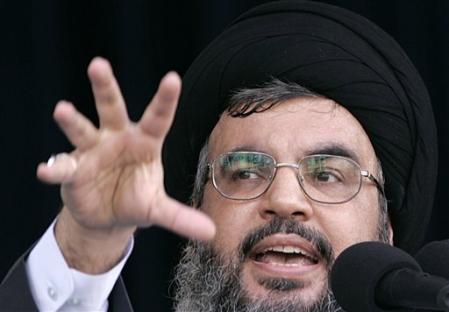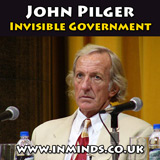
 Innovative Minds © 2014. All Rights Reserved. www.inminds.co.uk |
|
[Lebanon] Hezbollah chief's speeches sway Israeli opinion more than any Arab leaderAmos Harel, Haaretz A high-ranking Israeli intelligence officer says that Hezbollah leader Sheikh Hassan Nasrallah was the first Arab leader in 30 years who, through his speeches, had the potential to affect the Israeli public. The officer, whose last name cannot be disclosed, studied Nasrallah's speeches during the Second Lebanon War, which began four years ago today, in the course of graduate studies at the University of Haifa.  Sheikh Hassan Nasrallah Colonel Ronen, the chief intelligence officer for the Central Command of the Israel Defense Forces, previously held senior positions in the research division of Military Intelligence. The study analyzed 10 speeches by Nasrallah that were broadcast during the 34 days of warfare. Nasrallah's only public press conference during the war was on the first day of war, immediately following the abduction of IDF reservists Eldad Regev and Ehud Goldwasser. After that he remained in bunkers, fearing an Israeli assassination attempt, and recorded speeches that were later broadcast by Arab television networks. Col. Ronen writes that the speeches were the only means by which Nasrallah could deliver his message to various audiences. In fact, he argues, apart from the rockets it lobbed into Israel the speeches were the only offensive weapon that Hezbollah used in the war. Fearing of an extensive Israeli ground offensive, the organization took a mainly defensive posture.
Throughout the war Nasrallah tried systematically to undermine Israelis' confidence in their political and military leadership.
Col. Ronen says Nasrallah was the first Arab leader to affect Israeli public opinion since Egyptian president Gamal Abdel Nasser of Egypt, in the 1960s. Nasrallah's speeches were widely covered in Israel during the 2006 war and drew harsh responses from senior political and military officials. Ronen says the rhetoric and content of the speeches were influenced by Nasrallah's understanding of the development of the war, based on information from the field. He argues that had Israeli decision makers analyzed these speeches in real time it could have altered the course of the war. The main term that Nasrallah repeated throughout the war in his speeches was "sumud," Arabic for "standing firm" or "steadfastness." Ronen says that Nasrallah's rhetoric was aimed at supporting and strengthening the "steadfastness" in terms of social unity and solidarity among the Lebanese; among the Hezbollah combatants and the Shi'ite civilian population; and in the context of deterring Israeli attacks. Nasrallah focused on what he took to be proof of the IDF's weakness. He prided himself on "surprises" such as the missile assault on an Israel Navy destroyer and tried to create a deterrent against an Israeli ground offensive. Israel's weakness, as Nasrallah saw it, was its concern about the economic damage and the loss of human life in Israel resulting from Hezbollah rockets. "The Israelis are interested in blood and money," Nasrallah said in one speech. Ronen writes that throughout the war Nasrallah tried systematically to undermine Israelis' confidence in their political and military leadership. Nasrallah devoted a significant portion of his speeches to trying to justify the attack on Israel to the Lebanese public, after he misjudged - by his own admission - the force of the Israeli response. He argued that the soldiers' abduction that precipitated the war was legal according to the platform of the Lebanese government, to which Hezbollah belonged, and that the organization was forced to take action after Israel refused to reconsider a new exchange deal for the release of Lebanese prisoners it was holding. Col. Ronen says that in his speeches Nasrallah "moved like a pendulum" between arguing that the war was the result of Israel's over-reaction to the abduction of Regev and Goldwasser as well as a desire to avenge its humiliation over its 2000 withdrawal from Lebanon, on the one hand, and on the other hand arguing that it was part of an American and Israeli plot to exterminate Hezbollah, a plot foiled by the abduction. Nasrallah directed his bluntest attacks in his speeches at his domestic rivals, warning that he would settle scores with them and with the Arab states, which he accused of turning their backs on Hezbollah, "when the time was right." Col. Ronen writes that since the war Hezbollah's resistance has held its ground and Lebanese unity has not been undermined. Source: http://www.haaretz.com/print-edition/news/hezbollah-chief-s-speeches-sway-israeli-opinion-more-than-any-arab-leader-1.301347 Related ArticlesAlso Of InterestPage URL: http://www.inminds.co.uk/article.php?id=10461
|
|
Support Us
If you agree with our work then please support us.Campaigns INMINDS Facebook Live Feed Latest Video's
INMINDS Twitter Feed Tweets by @InmindsComFeatured Video's
You need Flash player 8+ and JavaScript enabled to view this video.
[all videos (over 200)..] Featured MP3 Podcast  "For most journalists, whether they realize it or not, are groomed to be tribunes of an ideology that regards itself as non-ideological, that presents itself as the natural center, the very fulcrum of modern life. This may very well be the most powerful and dangerous ideology we have ever known because it is open-ended. This is liberalism." Campaigning Journalist and Film-maker Socialism 2007 Conference, Chicago [43min / 21Mb] [all podcasts..] Newsletter Feedback |
 |
 |












































